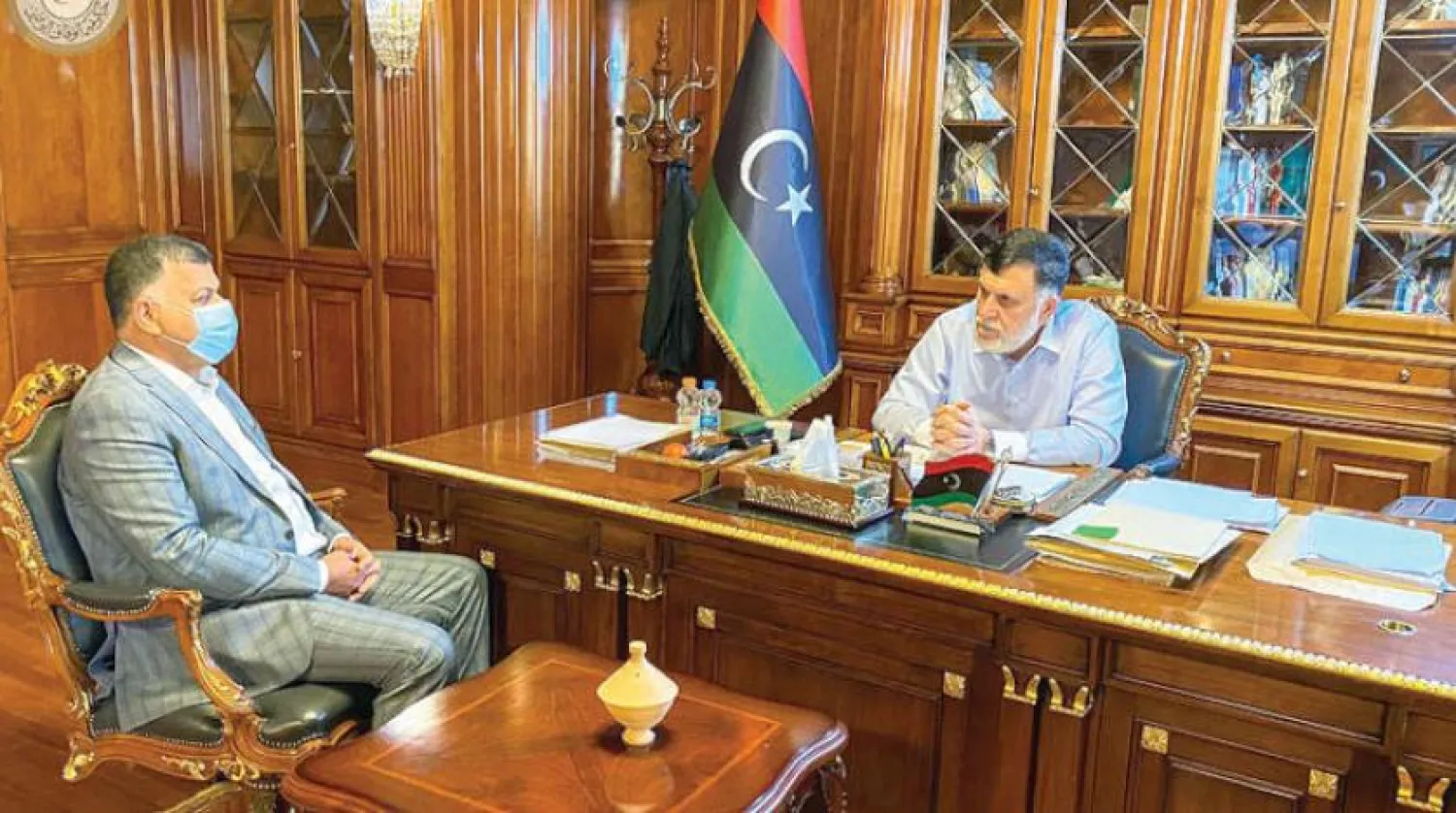The Libyan National Army (LNA), under the leadership of Field Marshal Khalifa Haftar, raised its readiness levels in the vicinity of the strategic city of Sirte and announced that it will remain alert to respond to any possible attacks staged by Turkey and militias aligned with the Government of National Accord (GNA).
On that note, GNA head Prime Minister Fayez al-Sarraj announced a cabinet reshuffle, which is believed to be the first official reaction to the sweeping anti-GNA protests in Tripoli.
For three days in a row, demonstrators have been rocking the Libyan capital with rallies protesting the deteriorated public services and living conditions.
On the other hand, the media center of LNA’s Al-Karama Operations Room said that the LNA has upped alertness levels to the maximum on the highway connecting Sirte to al-Jufrah. This followed reports that Turkish-sponsored Syrian militias were gathering to attack the area.
The speech given by Sarraj and broadcast on pro-GNA local channels about spearheading a cabinet reshuffle failed to persuade protesters out of the streets. Demonstrators continued to demand the overthrow of the GNA and the deposing of Sarraj.
Sarraj made the televised statement in conjunction with the outbreak of mass demonstrations in Tripoli against deteriorating living conditions and rampant corruption.
“I may have to declare an emergency in order to form a government of crisis...Urgent ministerial reshuffles will be made away from the consent [of some groups] and quotas,” he said.
Sarraj stressed that the selection of the new ministers would be “on the basis of competence, capabilities, and incorruptibility.”
The GNA leader insisted on calling for presidential and parliamentary elections in March, saying that "the only political option to save the homeland is to reproduce the powers through elections."
Meanwhile, power outages and internet service blackouts hit areas where protestors gathered in central Tripoli.
In other news, sources close to Saif al-Islam Gaddafi, the second son of the late Libyan leader Muammar Gaddafi, said that Misrata-based militias were looking for the Libyan political figure.
Armed militia leaders had accused Gaddafi of complicity in inciting the Tripoli protests.









